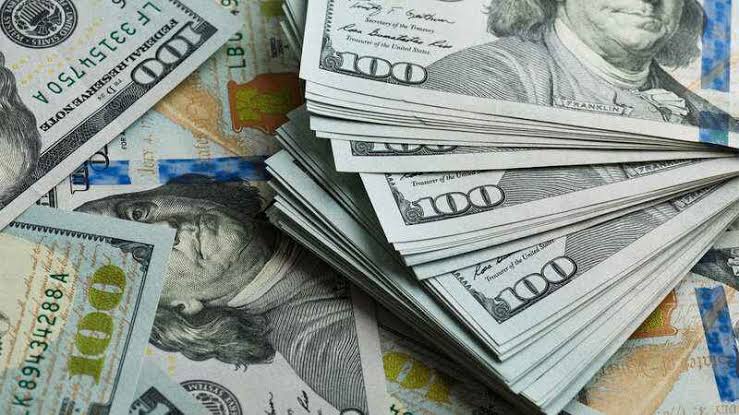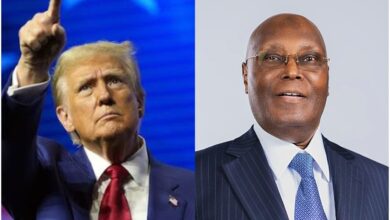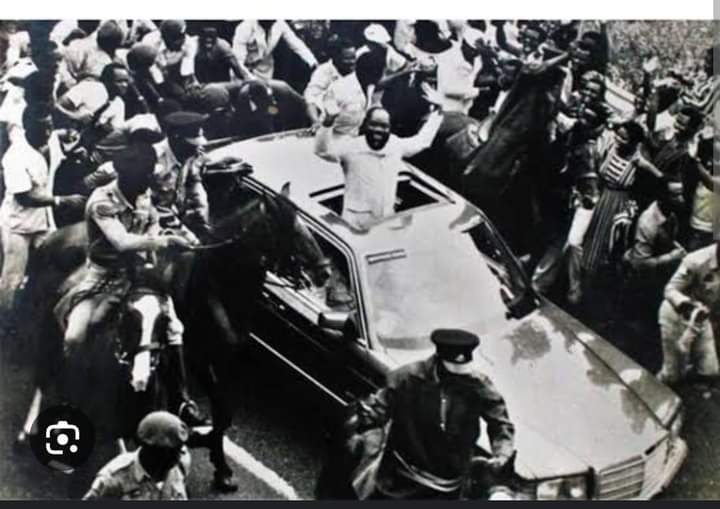Nigeria external reserve hits $40bn as FG target $1bn monthly inflow

The Central Bank of Nigeria (CBN) has disclosed that the external reserve has hit $40.2 as at the end of last week.
The CBN Deputy Governor, Economic Policy, Muhammad Sani Abdullahi, made the disclosure while speaking to potential investors on the sideline of the ongoing International monetary fund (IMF)/World Bank Annual meeting in Washington DC.
The Deputy Governor also disclosed that the CBN is targeting a $1 billion monthly inflow as the policies of the apex bank take root.
Abdullahi said: “in terms of our external reserves, we’ve seen a lot of growth over the last couple of months. As of Friday, we were at $40.2 billion of external reserves, which is a significant move up from a year ago, when we were less than $34 billion.
“We’re building buffers to ensure that when the time is required and buffers are required, we’re able to also cover at least 14.3 months of import for goods and services, and 15 months for goods alone.
“There’s a lot of work that’s happening right now in terms of ensuring that we clean up our export processes right from the farm gates to the ports, ensuring that we’re removing all the bottlenecks that hamper our economy.
In 2019 normal exports were $10.4 billion for Nigeria. Last year, we we’re down to about a little over $3 billion. We are now back on our way to, first of all, in the short term, that same $10.4 and then building it out.”
He said the central bank has also focused significantly on diaspora remittances.
“As of last year, the highest we had in a month is $350 million now we’re doing $600 million a month for diaspora, and we’re on target in the short to medium to do $1 billion, and that we think will significantly clear the domestic market demand for dollars.”
Also speaking at the event, Minister of Finance and Coordinating Minister of the Economy, Wale Edun, said: “There is determination to maintain market pricing of petrol pumps. What that will mean is that the wasteful and inefficient and costly 5% of GDP that was flowing out of Nigeria to the benefit of a few people and surrounding countries will now be available to develop and mobilize the Nigerian economy.”
Speaking to the gains of the removal of subsidy, the Minister said: “The reality is that although the subsidy on May 29 2023 was removed and was no longer on the balance sheet of the government, it did rear its head, not in terms of petrol subsidy, but a foreign exchange subsidy, which clearly was born by mainly the NNPC. And I think what I can say about their own situation is with where they are now, they have a route to paying down their payables, and I’m sure that in no time at all, they will start and from what I understand, they have even commenced that process of paying.”
Speaking on the influence of the IMF on the Economic policy prescription of the administration, Edun said: “ In terms of conversations with the IMF, we are members. We’re on the board of governors at the World Bank. And the IMF, it is one Braitainwood grouping. And so we have natural obligations. We have governance roles to play.
“The thought leadership, the technical assistance, the advice and information and data that these institutions are able to provide is of value. You don’t always have to take advice. We were told that we shouldn’t do domestic dollar issues and we were 100% over subscribed, but we still value their viewpoints.”




